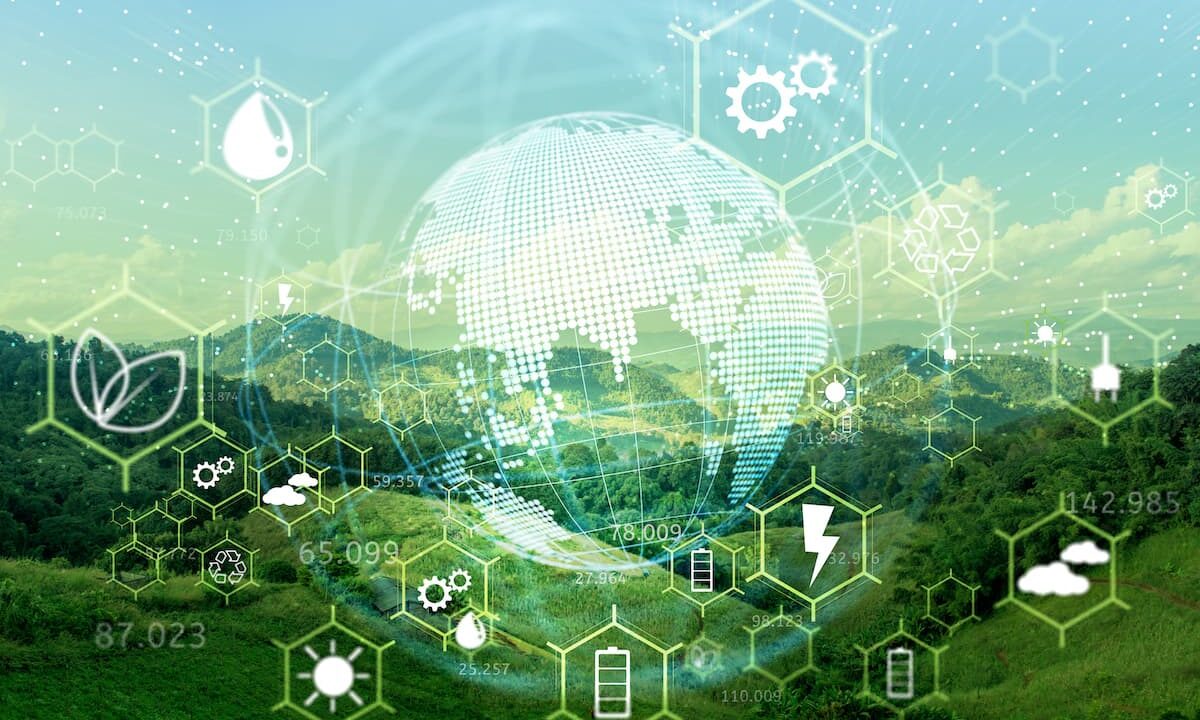
In recent years, the tech industry has seen an increasing shift toward sustainability and green technologies. With growing concerns over climate change and the environment, many of the world’s leading tech companies are now making significant strides to reduce their carbon footprints, promote clean energy initiatives, and invest in technologies that drive sustainable innovation. In 2024, this movement is more important than ever, as the tech sector finds itself balancing rapid growth with a responsibility to tackle global environmental challenges.
The Tech Industry’s Environmental Impact
The tech industry, known for its massive scale and data-driven economy, is also one of the most energy-intensive sectors in the world. Data centers, cloud computing, and the growing demand for smart devices all contribute to a substantial carbon footprint. According to recent reports, data centers alone are responsible for approximately 2% of global electricity consumption—a number that continues to rise with the expansion of cloud services and digital infrastructure.
However, despite these challenges, major tech companies are stepping up to align their operations with global sustainability goals, including those set by the United Nations and the Paris Agreement. These initiatives are not just a response to mounting environmental concerns—they are increasingly seen as a way to drive innovation and secure a competitive advantage.
Key Green Tech Initiatives from Major Tech Companies
- Apple: Leading the Charge with Carbon Neutrality
Apple has long been a frontrunner in green tech. In 2020, it became the first major company to achieve carbon neutrality for its global corporate operations, including its supply chain and product manufacturing. As of 2024, Apple is focusing on further reducing emissions by shifting to 100% recycled materials for its products, especially in its iPhones and MacBooks. The company is also investing in renewable energy projects around the world and pledging to make its products fully recyclable by 2030. Apple’s Environmental Responsibility Report regularly highlights its progress in carbon reduction and renewable energy sourcing, with over 70% of its total energy consumption coming from renewable sources.
- Google: Powering Data Centers with Renewable Energy
Google has made significant strides in sustainable practices by focusing on clean energy. Since 2017, the company has been 100% renewable-powered across all of its global operations. This includes its vast network of data centers, which are known for being among the most energy-intensive facilities. Google’s commitment extends beyond powering its own facilities. Through initiatives like Google’s Renewable Energy Purchasing Program, it has invested in large-scale wind and solar projects around the world. Additionally, Google is developing AI-powered tools that help optimize energy consumption across industries, making it a leader in using technology to combat climate change.
- Microsoft: Carbon Negative by 2030
Microsoft’s commitment to sustainability is a bold one. The company has set a goal to be carbon negative by 2030, meaning it plans to remove more carbon dioxide from the atmosphere than it emits. To achieve this, Microsoft is focusing on reducing its direct emissions and making long-term investments in carbon capture technologies. As part of its broader sustainability strategy, Microsoft is also committed to recycling water, eliminating waste, and utilizing renewable energy for its data centers. Through its AI for Earth program, Microsoft is supporting projects that use AI to address environmental challenges such as deforestation, water scarcity, and biodiversity loss.
- Amazon: Climate Pledge and Renewable Energy Projects
Amazon has also been a strong advocate for sustainable practices, having co-founded the Climate Pledge in 2019, which aims for net-zero carbon emissions by 2040. The company has already made considerable investments in renewable energy, having become the largest corporate buyer of renewable energy in the world. Amazon has committed to electrifying its delivery fleet and has even introduced the Amazon Day initiative to help reduce emissions by consolidating packages for delivery on a single day. Amazon’s sustainability strategy includes ambitious goals for zero waste operations and continuous efforts to reduce carbon emissions across its vast network of warehouses, data centers, and logistics operations.
- Tesla: Revolutionizing Electric Transportation and Energy Storage
As one of the most well-known proponents of sustainable energy, Tesla continues to lead the way in both electric vehicles (EVs) and energy storage solutions. Tesla’s mission is to accelerate the world’s transition to sustainable energy, and it has made significant strides in reducing emissions through its growing line of electric cars, which have become a symbol of eco-conscious transportation. Additionally, Tesla’s solar panels and Powerwall energy storage systems are helping homeowners and businesses switch to renewable energy. In 2024, Tesla remains at the forefront of innovations in battery technology, energy storage, and electric vehicle infrastructure, including expanding the Supercharger network.
- Intel: Sustainability in Semiconductor Manufacturing
Intel, one of the world’s largest chip manufacturers, is focusing on reducing the environmental impact of its manufacturing process. The company aims to make its semiconductor manufacturing process more sustainable by using renewable energy and reducing its water consumption. Intel’s 2030 Sustainability Goals include reducing greenhouse gas emissions from its operations and transitioning to 100% renewable energy. In addition, Intel is innovating in energy-efficient chip technology, ensuring that its products play a role in driving sustainable solutions across industries, including AI, healthcare, and clean energy.
Technological Innovations Driving Sustainability
In addition to corporate policies and goals, tech companies are heavily investing in new green technologies that can drive sustainability across industries. Some key areas of innovation include:
- AI for Climate Change: AI and machine learning are being used to predict climate patterns, optimize energy consumption, and enhance environmental monitoring. Companies like Google and Microsoft are using AI to improve the efficiency of renewable energy systems, reduce waste, and help businesses make data-driven sustainability decisions.
- Smart Cities: Technology is transforming urban spaces into smart cities by improving infrastructure, reducing energy consumption, and optimizing resource use. From energy-efficient street lighting to smart traffic systems, AI and IoT are enabling cities to operate more sustainably.
- Circular Economy: Many tech companies are embracing the circular economy model, which focuses on reducing waste by reusing and recycling products. Apple and Google are leaders in using recycled materials in their products and pushing for device repairability, encouraging consumers to extend the life of their electronics rather than opting for new products.
Challenges and the Road Ahead
While significant progress has been made, there are still challenges to overcome in the tech industry’s pursuit of sustainability:
- E-Waste: Electronic waste continues to grow at an alarming rate. The industry needs to adopt more sustainable manufacturing practices and focus on improving product longevity and recyclability to tackle this problem effectively.
- Energy Intensity of AI and Data Centers: The growing demand for AI and cloud services means more energy is needed to power data centers. Making data storage and processing more energy-efficient remains a key hurdle.
- Supply Chain Sustainability: While many companies have made strides in reducing emissions from their own operations, the carbon footprint of global supply chains remains a significant challenge. Tech companies must continue to work with suppliers to ensure sustainable sourcing and manufacturing practices.
Conclusion: Green Tech Is the Future
In 2024, green technologies are no longer a niche part of the tech industry—they are at the core of its future. Major tech giants are leading the way in creating a more sustainable future, developing technologies that not only reduce their environmental impact but also enable global efforts to combat climate change. As these companies continue to innovate, they are proving that sustainability and tech can go hand-in-hand, driving both economic growth and environmental responsibility.
In the coming years, expect to see even more breakthroughs in renewable energy, green manufacturing, and AI-powered solutions to environmental challenges, with tech companies leading the charge in building a greener world for all.








